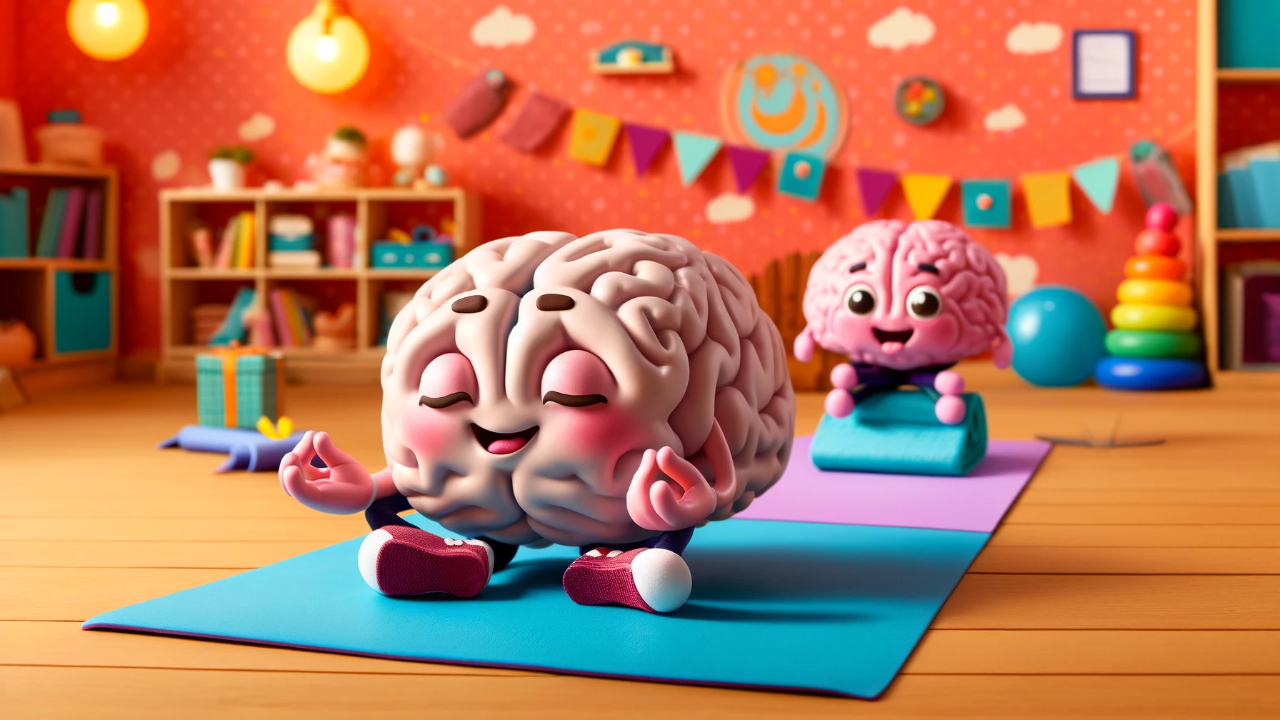Day 5: The Power of Brain Breaks in Home Education
Jun 06, 2024
Welcome to Day 5 of our Home Educating series!
Today, we’re discussing the importance of brain breaks and how they can significantly enhance your home education experience.
Brain breaks are short, intentional pauses during learning sessions to refresh and re-energise the mind.
These breaks can improve focus, reduce stress, and make learning more enjoyable for your children.
Let’s explore some effective ways to incorporate brain breaks into your daily routine.
Physical Activity

Incorporating physical activity into your brain breaks is a great way to help your children burn off excess energy and refocus.
Here are some simple yet effective physical activities:
- Quick Exercises: Engage in quick, high-energy exercises like jumping jacks, running in place, or a mini dance party. These activities can elevate the heart rate and boost energy levels.
- Stretching: Gentle stretching can help relieve muscle tension and improve circulation. Consider a short yoga routine or basic stretches that involve reaching for the toes, twisting the torso, and rolling the shoulders.
- Outdoor Play: If the weather permits, take a short break outside. A quick game of tag, a few minutes on the trampoline, or a brief walk around the garden or block can do wonders for mental clarity and focus.
Creative Pause
Creative activities provide a wonderful break from structured learning and can stimulate different parts of the brain. Here are some ideas for creative brain breaks:
- Drawing: Set up a quick drawing activity where your children can express their creativity. You can provide prompts like “draw your dream house” or “illustrate your favourite story.”
- Story-Telling: Encourage your children to tell a story. This can be done verbally or by writing a short story. Story cubes or cards with story prompts can add an element of fun and unpredictability.
- Crafts: Simple crafts like origami, making paper airplanes, or quick DIY projects can provide a relaxing break and allow for creative expression.

Mindfulness
Mindfulness activities can help calm the mind, reduce stress, and improve overall well-being. Here are some mindfulness practices to incorporate as brain breaks:
- Breathing Exercises: Teach your children simple breathing exercises to help them relax and refocus. Techniques like deep belly breathing or the “4-7-8” method (inhale for 4 seconds, hold for 7 seconds, exhale for 8 seconds) are effective.
- Brief Meditation: A short meditation session can help clear the mind. Use guided meditation apps or videos designed for children. Even a few minutes of sitting quietly with eyes closed can have a significant impact.
- Gratitude Practice: Take a moment to reflect on things your children are grateful for. This can be done verbally, or they can write or draw their thoughts. Focusing on positive aspects can improve mood and mindset.
Resources and Tools
Here are some resources to help you implement effective brain breaks:
- GoNoodle: Offers fun, interactive videos that encourage movement and mindfulness.
- Cosmic Kids Yoga: Provides yoga and mindfulness videos specifically designed for children.
- Smiling Mind: A mindfulness app that offers guided meditations and activities for kids and families.
Note: Some of these links may be affiliate links, meaning we may earn a commission if you make a purchase through them. This helps support the blog and allows us to continue providing free content to you.
Tips for Effective Brain Breaks
To make the most of brain breaks, keep these tips in mind:
- Schedule Regular Breaks: Integrate brain breaks into your daily schedule. Aim for a break every 45-60 minutes to keep your children refreshed and focused. However, this will vary and you know your child better than anyone else so you administer breaks as and when they need it.
- Be Flexible: Pay attention to your children’s needs. If they seem restless or unfocused, don’t hesitate to take an unscheduled break.
- Keep It Fun: Brain breaks should be enjoyable. Let your children choose their favourite activities or rotate through a variety of options to keep things interesting.

Share Your Ideas
We’d love to hear your favourite brain break activities! Share your ideas and experiences on our Facebook page or tag us on Instagram. Your contributions can inspire and support other home educating families.
What’s Next?
Join us tomorrow as we look at outdoor learning. We’ll provide you with activities, resources, and ideas to help your child develop a love for the great outdoors.
Until then, happy home educating and enjoy incorporating brain breaks into your routine!
To your joy!
Tracey
P.S. Remember to subscribe to our newsletter and follow us on social media for the latest updates and exclusive content.
Let’s make this home education journey an incredible experience for you and your family!